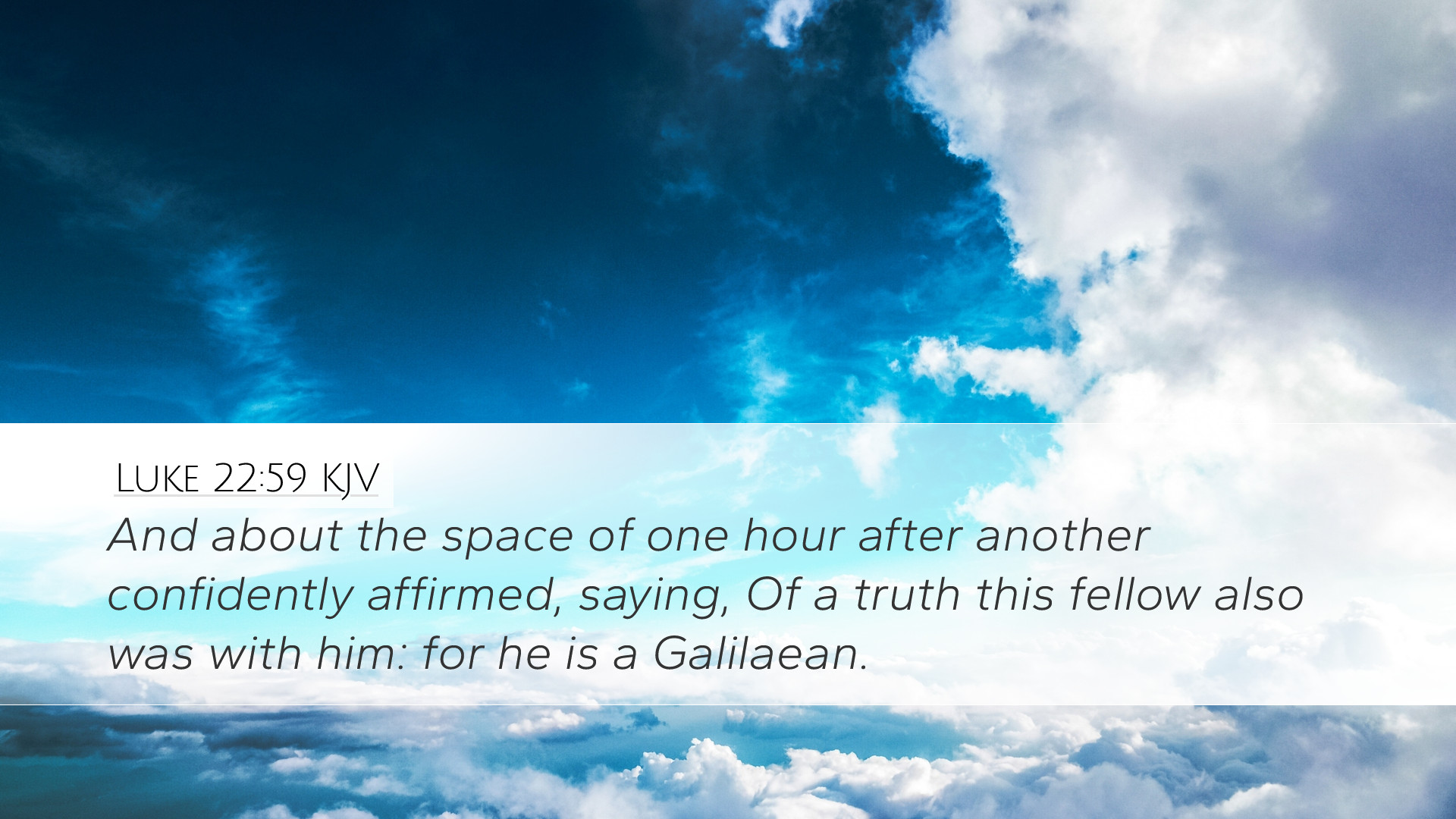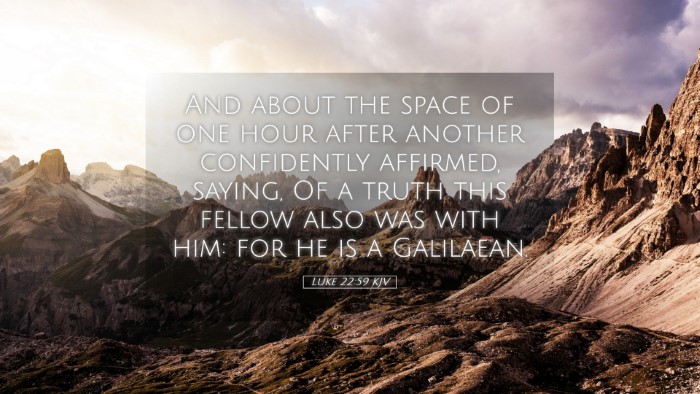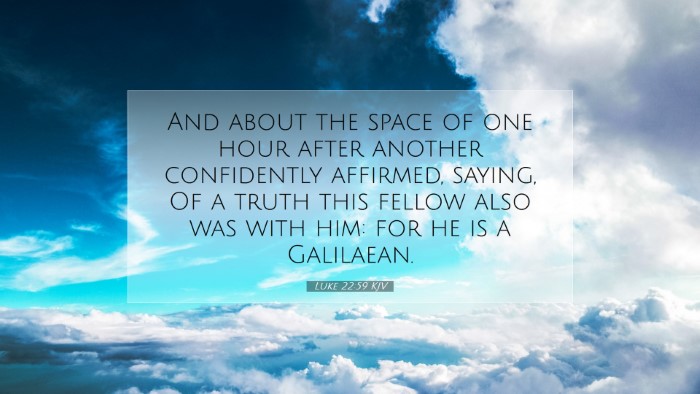Commentary on Luke 22:59
Verse Context: Luke 22:59 states, “And about the space of one hour after another confidently affirmed, saying, Of a truth this fellow also was with him: for he is a Galilean.” This verse falls within the narrative of Peter's denial of Jesus, serving as a critical point in understanding the precariousness of faith and the gravity of human failure.
Historical and Literary Context
The events captured in this verse occur during the trial of Jesus. After the Last Supper, Jesus is arrested, and Peter follows Him into the courtyard of the high priest. This verse illustrates the increasing pressure on Peter following the arrest, as he attempts to distance himself from the repercussions associated with being a disciple of Jesus.
The Purpose of Peter’s Denial
Matthew Henry emphasizes that this incident reflects a deep-seated fear among the disciples, suggesting that Peter's denials are symbolic of the broader struggle faced by the early Christians and the human tendency to falter in faith under duress.
Insights from Matthew Henry
- Fear and Human Nature: Henry points out that Peter's fear represents the frailty of human nature, especially when confronted with potential persecution. Despite Peter's earlier bravado, he succumbs to societal pressures and fears for his safety.
- The Progressive Denial: Peter’s denial escalates with increasing intensity from mere association to outright denial. This progression signifies how fear can consume one's witness for Christ.
- God's Sovereignty: Even in moments of failure, God's sovereignty is at play, leading to Peter's eventual restoration, which highlights the hope within human frailty.
Reflections from Albert Barnes
- Public Accusation: Barnes notes that the assertion made by those surrounding Peter illustrates the public nature of sin and the importance of public confession and acknowledgment of faith.
- Identification with Jesus: The term “Galilean” suggests a geographical association with Jesus, further mounting the pressure on Peter. This shows how identification with Christ can lead to both honor and persecution.
- Challenge to Authenticity: Barnes argues that Peter's denial calls into question the authenticity of his previous claims of loyalty, serving as a reminder to all believers of the need for vigilance in faith.
Interpretations from Adam Clarke
- Denial Under Pressure: Clarke observes that the mention of time—“about the space of one hour”—paints a vivid picture of the internal struggle within Peter. The elapsed time signifies a mounting pressure that leads to his ultimate denial.
- The Role of Accusers: Clarke discusses the firmness of the accusations against Peter, indicating that such pressures are often external and persistent, highlighting the context’s relatability to the modern believer's experiences with faith.
- Transformation Through Failure: Crucially, Clarke emphasizes that through Peter's moment of weakness, he is later transformed into a pillar of the early Church, indicating that failure does not define destiny but rather prepares for restoration.
Theological Implications
This verse serves several theological implications worth noting:
- Human Fallibility: Peter's denial reveals the frailty of even the most committed followers of Christ. This transparency is essential for understanding the grace needed for redemption.
- The Tension of Faith and Fear: The struggle Peter faces is a parallel to the experience of many believers who encounter crises of faith. It emphasizes the eternal conflict between faith in Christ and human response to fear.
- Christ’s Foreknowledge: This moment also reflects Christ’s foreknowledge and the prophetic nature of his warnings to Peter regarding the denial to come. It awakens a profound understanding of Christ’s empathy towards human weaknesses.
Conclusion
Luke 22:59 encapsulates a universal theme of the human experience with faith: the temptation to deny one’s beliefs under pressure. By reflecting on the insights offered by Matthew Henry, Albert Barnes, and Adam Clarke, we gain a fuller appreciation of the complexities surrounding Peter’s denial. This passage does not simply depict failure; it offers hope for restoration and reinforces the call to steadfastness in faith, urging believers to remain resilient even when faced with significant challenges.


